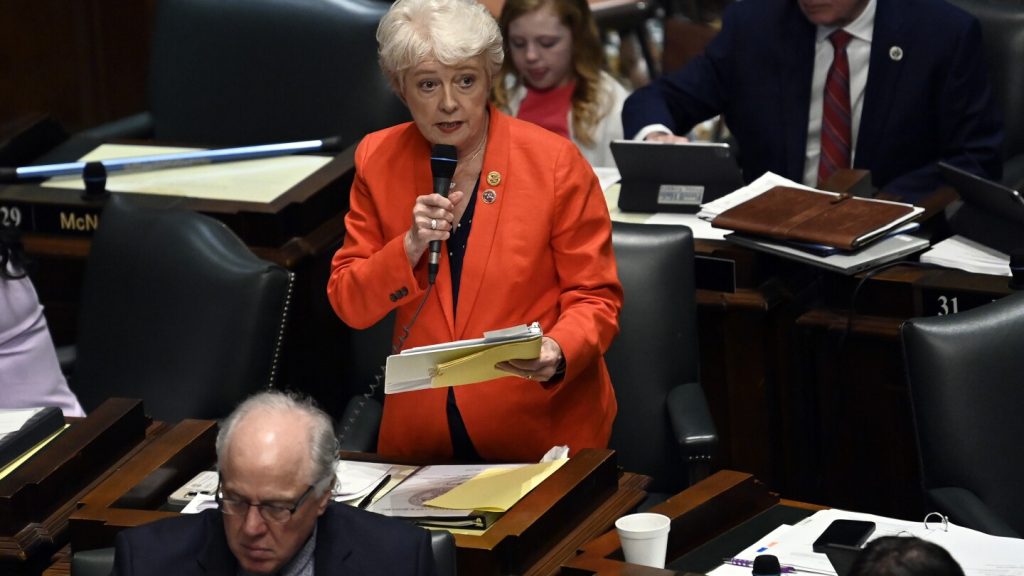Tennessee lawmakers are considering a bill that would criminalize adults who help minors receive gender-affirming care without parental consent. The proposal, which mirrors language from a similar “anti-abortion trafficking” bill, aims to prevent adults from assisting young people in obtaining gender-affirming care without permission from their parents or guardians. Critics argue that violations of this law could range from simple conversations with adolescents about where to find care to helping them travel to another state with more lenient restrictions on such services. Democratic state Sen. Jeff Yarbro expressed concern about the bill infringing on constitutional rights.
Republican Sen. Janice Bowling, the sponsor of the bill, primarily read portions of the proposed statute and summary when asked questions by Democrats, rather than engaging in debate. Idaho is currently the only state with legislation criminalizing adults who help minors access abortion without parental approval, although this law is temporarily blocked due to a federal legal challenge. Despite the recent trend among Republican-led states, including Tennessee, to ban gender-affirming care for minors, no state has yet implemented restrictions on assisting young people in accessing such care. On the contrary, some Democratically-led states have been working to protect health care providers who offer services prohibited in a patient’s home state.
Tennessee has endorsed several bills targeting LGBTQ+ individuals, including a recent proposal to ban the use of state funds for hormone therapy or sex reassignment procedures for inmates, except for those currently receiving treatment. Previous measures have attempted to limit events featuring certain drag performers, allow LGBTQ+ children to be placed only with families holding anti-LGBTQ+ beliefs, and restrict transgender students in various school settings. The state has also granted legal protections to teachers who do not use a transgender student’s preferred pronoun, limited transgender athletes, restricted transgender students’ use of bathrooms according to their gender identity, and allowed parents to opt-out of discussions about gender and sexuality in the classroom. These actions have drawn criticism from advocates and LGBTQ+ supporters.
The proposed legislation advanced by Tennessee lawmakers is part of a broader trend in Republican-led states to enact policies targeting the LGBTQ+ community. In contrast, some Democratically-led states, such as Maine, have been implementing shield laws to protect health care providers who offer services banned in a patient’s home state. A group of 16 state attorneys general, including Tennessee’s Jonathan Skrmetti, criticized Maine’s shield law as “constitutionally defective” and vowed to challenge it through legal means. Maine’s attorney general, Aaron Frey, defended the shield law as necessary to protect lawful behavior occurring in Maine and other states from punitive actions by objecting states.
The ongoing debates over legislation related to LGBTQ+ rights highlight the deep divide between states on issues of gender identity and sexual orientation. While some states are enacting measures to protect LGBTQ+ individuals and health care providers, others are passing laws that restrict access to gender-affirming care and limit the rights of transgender students. The clash between state laws underscores the need for comprehensive federal protections for LGBTQ+ individuals and the importance of continued advocacy and legal challenges to safeguard their rights and access to care. The outcome of these debates will have far-reaching implications for the LGBTQ+ community and the broader fight for equality and inclusion in the United States.


